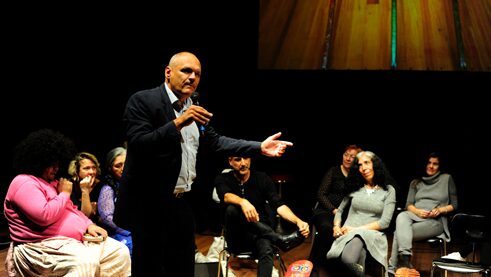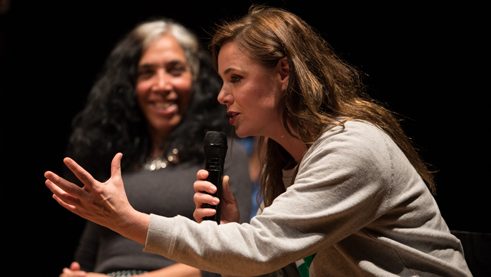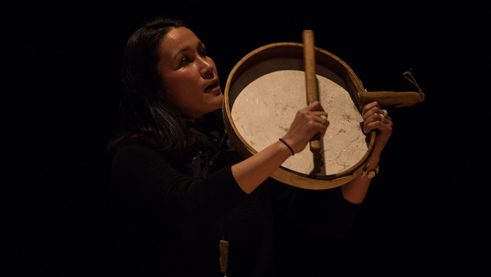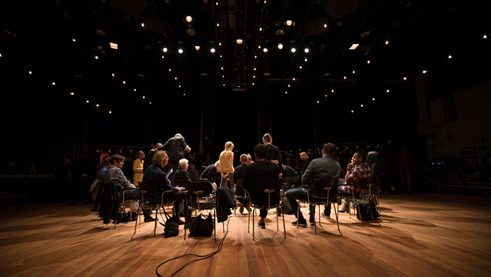Episodes of the South
New Perspective(s)
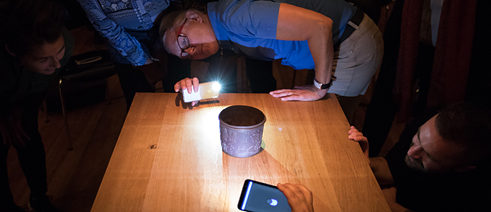
The decolonialisation of thought is the declared aim of Episodes of the South. The many-voiced project by the Goethe-Instituts in South America visualises perspectives of the Global South. At the Ruhrtriennale, artists, sociologists and art historians met at PACT Zollverein, conducted dialogues with objects and approached the subject matter artistically and musically.
In the centre of the arena stands a vessel, perhaps made of clay. Animals and other figures, maybe deities, are illustrated on it. Is it an archaeological artefact or an intimation of the future? Is it a vase, a Mayan relic, a gift for the baby Jesus, a collection box for foreign coins? At this “Dialogue with Objects,” participants enter into lively speculations, sometimes concentrated and factual, sometimes jovial and personal. Scientists, performers, musicians and publicists are freely associating. The Goethe-Institut and PACT Zollverein invited them to test a global art history based on different interpretations.
The vessel reminds an actor from Greenland of a yoghurt cup. An Irish musician would like to hear the sound the basin makes. A German journalist asks the object questions. And a South African lecturer thinks about its possible creator: a young woman, her dreams and motivations. The focus on this previously unknown art object is as diverse as the people behind it, as their cultures, origins, educations or life experiences.
An eye on the salvation of Europe
“There is no universal form for analysing and evaluating,” says Katharina von Ruckteschell-Katte, head of the Goethe-Institut São Paulo and initiator of the Episodes of the South project. Visualising different perspectives is one goal of the project. This can radically break, expand and enrich western thinking habits. And von Ruckteschell-Katte goes further, saying, “We want to position ourselves. My – perhaps somewhat idealistic – dream is the salvation of Europe.” Salvation through diversity.The Episodes of the South started three years ago and have been touring the world since then in various events. In addition to the dialogues with objects, there have been panel discussions about the future of museums, a video conference on Afro-Futurism, an exhibition on endangered languages and protest concerts. At the Ruhrtriennale a lot of “episode” makers met for the first time at “Episodes of the South – the other way around” at PACT Zollverein where they combined their social contexts, their reflexive and artistic impressions. Over three evenings in different formats, perspectives were changed, diversity was revealed and participation was practiced.
Shamanism and drumbeats
The Brazilian sociologist Laymert Garcia knows something about overcoming geographical and cultural boundaries. The professor from São Paulo collaborates with the Yanomami people in the Amazon region and from 2006 to 2010 developed an opera with their shamans. In a conversation with Varna Marianne Nielsen, he explores the musical language of the Inuit on the PACT stage. Nielsen is a shaman and musician from Greenland and has brought along the traditional drum of a friend. When she hits the drum, her entire body vibrates, then her body speaks. The individual heartbeat of the musician is what dictates the rhythm, explains Nielsen. This also complicates the notation, she replies to a question from the audience.The Episodes of the South enable direct, barrier-free access to cultures that we in Germany and Europe otherwise rarely encounter. They become approachable, tangible, useable.
